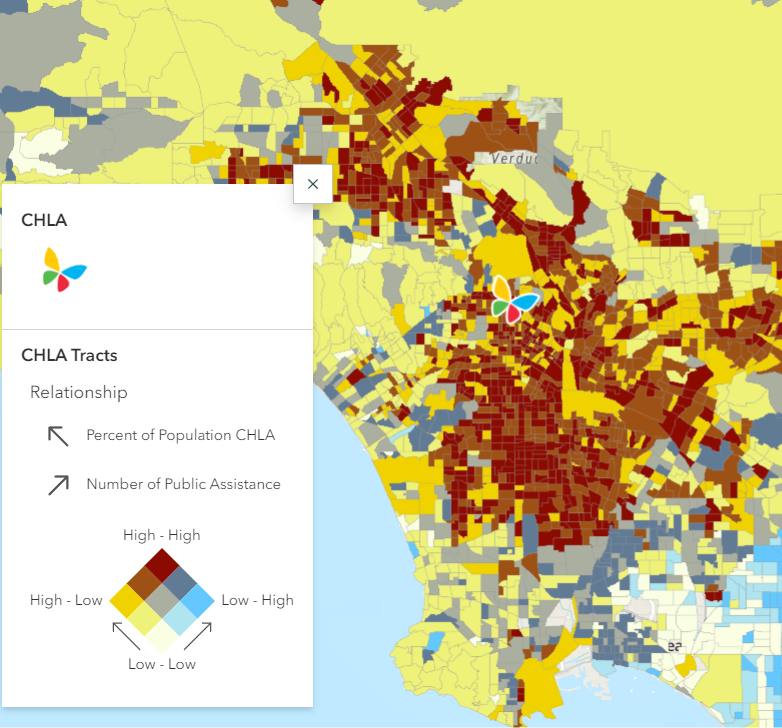Geographic Access to Health
Presenters:
Andrew Kampfschulte
Jonathan M. Tan
University of Southern California
Examining social determinants of health has been a growing trend in healthcare research. With a shift toward more personalized care, cultural and socioeconomic characteristics are becoming crucial to providing better healthcare and improving patient outcomes. Previous research has relied on large, population-level geographies, using methods prone to bias and error. We propose here a new, individual patient-centric approach to understanding pediatric barriers to care in the Los Angeles area by incorporating interdisciplinary sciences. Children, reliant on adult support to drive, in environments unsafe to walk or cycle for long distances, and with limited access to public transportation are particularly vulnerable to the impact of higher transit burdens. This burden is then compounded further by socioeconomic factors that leave the most vulnerable without equitable access to care. We will present (1) the development of an individual-level geographic access-to-care model for Los Angeles and (2) access to healthcare services from the perspective of transit-burden for children across a pediatric healthcare system. The clinical implications of our results will enable healthcare organizations to risk-stratify patients at greatest geographic and transportation risk for healthcare utilization, strategically deploy resources to assist patients, and advocate for specific communities to have improved transportation access.



